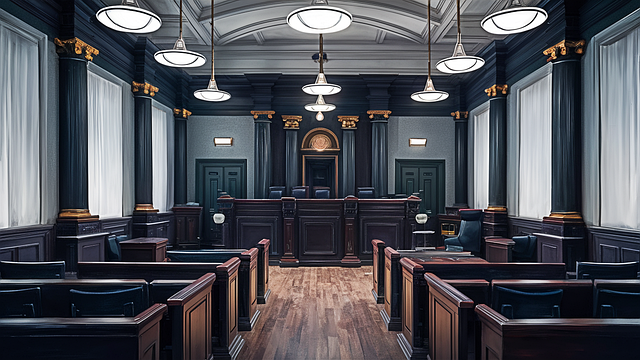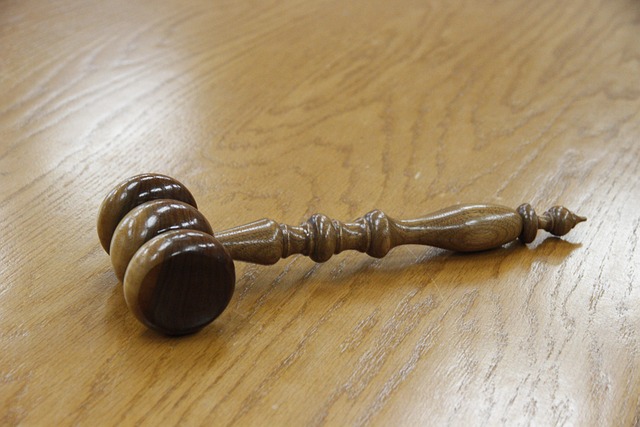Public corruption, ranging from bribery to abuse of power, severely undermines public trust and has significant legal and societal consequences. Specialized legal solutions are crucial to ensure fairness in cases involving real estate markets, which are particularly vulnerable to manipulation by powerful individuals. Legal experts offer tailored strategies for property ownership disputes, including Restorative Justice (RJ), which focuses on healing relationships and rebuilding community trust. RJ prioritizes open dialogue, accountability, and collaborative problem-solving over punitive measures, aiming to dismiss charges and promote transparency in property transactions.
Public corruption charges cast a long shadow over individuals and businesses, particularly in property ownership and transactions. Understanding these charges and their legal framework is crucial for navigating potential disputes. This article explores the definition of public corruption, its impact on property rights, and offers insights into effective legal strategies to defend against allegations. We delve into alternative approaches like restorative justice, providing comprehensive solutions for complex property ownership disputes, especially in light of corruption. Discover how these measures can foster a more transparent and just system.
- Understanding Public Corruption Charges: Definition and Legal Framework
- Impact of Corruption on Property Ownership and Transactions
- Legal Strategies to Address and Defend Against Corruption Allegations
- Restorative Justice and Property Disputes: Alternative Approaches
Understanding Public Corruption Charges: Definition and Legal Framework

Public corruption charges are a serious matter that involves the misuse of public office for personal gain. It encompasses a range of illicit activities, from bribery and embezzlement to fraud and abuse of power. These offenses erode public trust in government institutions and can have far-reaching consequences for both individuals and society at large. Understanding the legal framework surrounding these charges is crucial, as it outlines the rights of those accused and the potential outcomes, including a complete dismissal of all charges.
The prosecution of public corruption cases relies on robust legal solutions that ensure fairness and due process. This includes the application of specialized laws and regulations designed to address white-collar crimes. Accused individuals have the right to legal representation and a fair trial, where they can defend against allegations and strive for a complete dismissal of all charges. Avoiding indictment is a key objective for those facing such accusations, as it can lead to severe penalties including fines, imprisonment, and damage to one’s reputation and future career prospects.
Impact of Corruption on Property Ownership and Transactions

Public corruption, when individuals in power abuse their positions for personal gain, has profound effects on various aspects of society, including property ownership and transactions. When corrupt officials manipulate legal processes or accept bribes to favor specific individuals or entities, it disrupts the fairness and stability of real estate markets. This can lead to inflated property prices, unfair distribution of resources, and a general erosion of trust in the legal system. As a result, both philanthropic and political communities suffer, as legitimate business activities are hindered by the uncertainty and instability caused by corruption.
The impact is not limited to individual cases; it reverberates through all stages of the investigative and enforcement process. Legal solutions for property ownership disputes become complex when corruption has been involved. Jury trials may be influenced or even compromised, leading to unfair outcomes. Therefore, addressing public corruption is crucial to ensuring transparent and just transactions in real estate, fostering a robust and equitable market, and maintaining the integrity of legal processes that underpin property ownership.
Legal Strategies to Address and Defend Against Corruption Allegations

When facing public corruption charges, individuals have legal options to navigate these complex allegations. One key strategy involves a thorough review of all documentation and evidence, ensuring transparency and accountability. Legal experts can help their clients understand their rights and craft a robust defense, especially when dealing with sensitive issues related to property ownership disputes. By examining the facts meticulously, they can identify any inconsistencies or gaps in the prosecution’s case.
The process includes providing legal solutions tailored to each client’s unique situation, covering all stages of the investigative and enforcement process. This may include negotiating plea deals, challenging evidence, or even seeking dismissal if the allegations are unsubstantiated. Moreover, building a strong defense also involves understanding the broader context, considering the role of philanthropic and political communities, and presenting a compelling narrative for his clients’ actions to mitigate potential charges.
Restorative Justice and Property Disputes: Alternative Approaches

In addressing public corruption charges, Restorative Justice (RJ) emerges as a promising alternative to conventional legal approaches, particularly in property disputes that often accompany bribery and abuse of power cases. Unlike punitive measures, RJ focuses on healing relationships and restoring community trust, which can be invaluable when dealing with systemic issues within government entities. This approach encourages open dialogue, accountability, and the development of agreements that address the root causes of corruption while ensuring a fair resolution for all parties involved in property ownership disputes.
By prioritizing reconciliation over retribution, RJ offers legal solutions for property ownership disputes that may lead to the complete dismissal of all charges. Through mediation and collaborative problem-solving, individuals accused of corruption can work towards winning challenging defense verdicts while also fostering positive change within their respective businesses and communities. This innovative method not only tackles the legal aspects of these complex cases but also paves the way for a more transparent and accountable future, where ethical practices in property transactions become the new norm.
Public corruption charges significantly impact property ownership and transactions, complicating legal landscapes. Understanding these charges, their effects, and adopting innovative approaches like restorative justice are crucial steps towards addressing these disputes. By exploring effective legal strategies and considering alternative resolutions, individuals can navigate these complex issues with robust, tailored legal solutions for property ownership disputes. Ultimately, fostering transparency and accountability in public corruption cases is essential to ensuring fairness and security in property rights.






